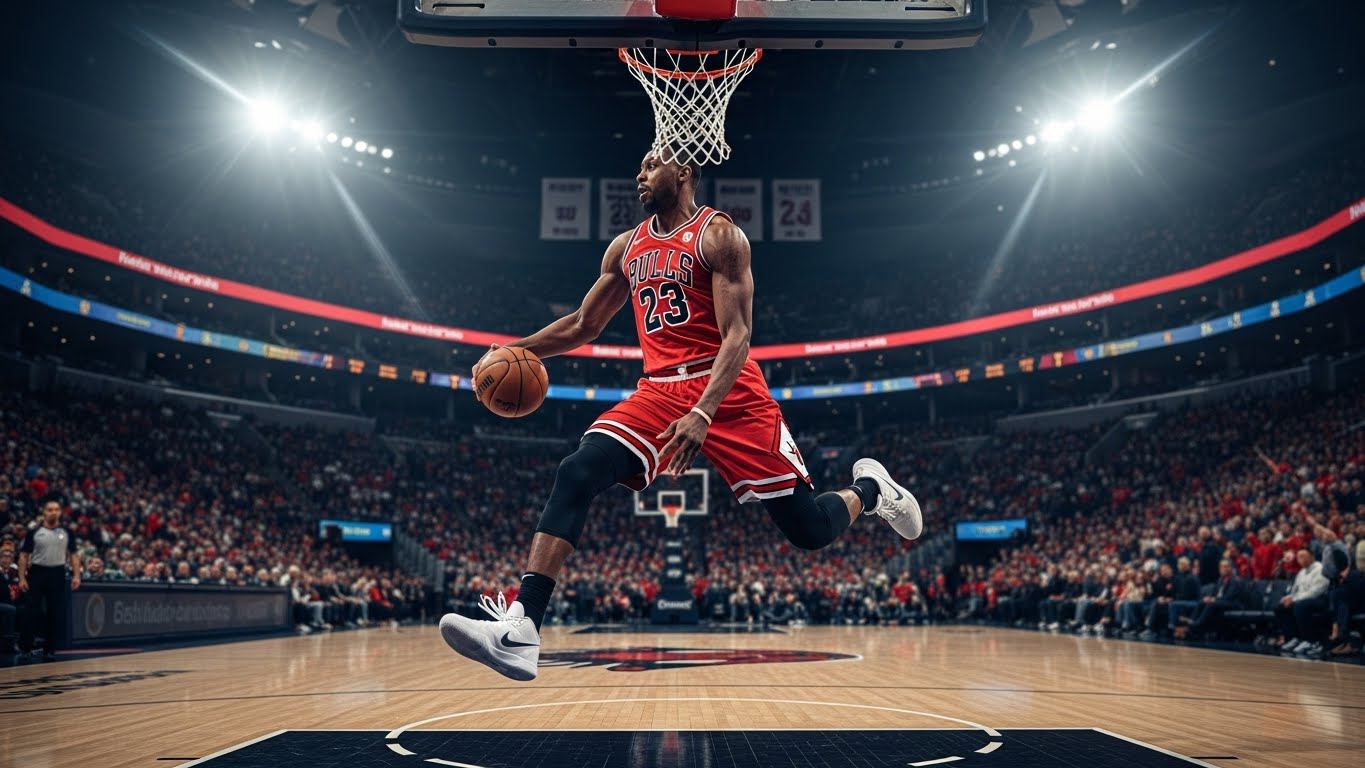Sports are far more than mere games. They are an essential part of human culture and civilization, deeply woven into the fabric of society. From promoting physical health to fostering social bonds, sports offer a wide range of benefits that impact both individuals and communities. Whether it’s through team-based games or individual athletic pursuits, the influence of sports can be felt across the globe, shaping not only our physical well-being but our social interactions, economies, and even political landscapes. In this blog, we explore the multifaceted nature of sports, understanding their role in modern society and why they continue to captivate millions of people worldwide.
The Physical Benefits of Sports: A Path to Health
The most obvious benefit of participating in sports is the improvement of physical health. Engaging in regular physical activity is one of the most effective ways to enhance cardiovascular fitness, build muscle strength, and maintain a healthy weight. Various sports offer different types of exercise that target specific physical abilities, such as endurance, flexibility, strength, and coordination. Whether running a marathon, swimming, or playing soccer, each sport challenges the body in different ways and contributes to overall fitness.
For example, endurance sports like running or cycling are excellent for improving cardiovascular health. These activities strengthen the heart and increase lung capacity, which can lower the risk of chronic diseases such as heart disease, stroke, and diabetes. On the other hand, strength-based sports like weightlifting or rugby are ideal for building muscle mass and increasing bone density. As we age, engaging in weight-bearing sports is especially important for preventing osteoporosis and maintaining muscle function.
In addition to physical health, sports are also highly effective for improving body composition. Regular participation helps reduce body fat, increase lean muscle mass, and improve metabolic function, making it easier for people to maintain healthy weight levels. The physical improvements gained through sports have long-term effects, not only preventing illnesses but enhancing the quality of life as people grow older.
Mental Health and Emotional Well-being Through Sports
While the physical health benefits of sports are often highlighted, their impact on mental health is equally significant. Physical activity, especially through sports, has been shown to reduce symptoms of anxiety, depression, and stress. When we engage in exercise, our brain releases chemicals known as endorphins, which are often referred to as the body’s “feel-good” hormones. These hormones promote a sense of well-being and happiness, alleviating feelings of stress or sadness. This natural mood boost is one of the key reasons many people turn to sports as a form of therapy.
Furthermore, sports provide a productive outlet for emotions. Competitive sports, for example, help athletes channel their energy and frustration in a healthy way, while promoting focus, determination, and mental resilience. Individuals who play sports often develop a greater sense of control over their emotions and can handle stressful situations better. For many, the routine of training, playing, and competing in sports provides an important escape from the pressures of daily life, offering an opportunity to focus entirely on the task at hand rather than external worries.
The mental discipline learned in sports also translates into other aspects of life. Athletes frequently set goals, create plans to achieve them, and develop perseverance to overcome challenges. These skills are transferable to work and personal life, helping individuals develop resilience and a strong work ethic. In this way, sports contribute to emotional and psychological growth that extends beyond physical health.
Sports and Social Connectivity: Building Relationships
Sports are a powerful tool for social interaction. They offer a platform where people from different backgrounds, cultures, and walks of life come together with a shared goal. Whether it’s a team sport like football or a casual game of basketball with friends, sports create opportunities for socializing, cooperation, and teamwork. The relationships built through sports are often deeper and more meaningful due to the shared experiences of striving toward common goals.
Team sports, in particular, provide an environment where athletes must rely on each other to succeed. These interactions help foster teamwork, trust, and communication. Over time, teammates form close bonds, learning how to navigate both victory and defeat together. These social connections often extend beyond the playing field, with teammates becoming lifelong friends. In this sense, sports play a crucial role in building strong communities, as they encourage people to work together, support each other, and celebrate collective achievements.
Sports also promote inclusivity. People of all ages, genders, and backgrounds can participate in sports, whether at a competitive level or for recreational purposes. In many ways, sports transcend boundaries such as race, socioeconomic status, and geographical location. They offer a universal language of competition and camaraderie that connects people from diverse cultures around the world. International sporting events like the Olympics and the World Cup demonstrate the power of sports to unite people, bringing nations together in peaceful competition.
The Role of Sports in Education: Developing Life Skills
Sports have a profound influence on education. In many schools and universities, athletics are considered a vital part of the curriculum, as they teach students valuable life skills that go beyond the classroom. Participation in sports helps develop discipline, responsibility, and time management. Student-athletes often have to balance their academic responsibilities with rigorous practice schedules, learning how to manage their time efficiently and stay organized.
Sports also instill critical skills such as leadership, teamwork, and perseverance. Through competition and training, athletes learn how to motivate themselves and their teammates, how to lead by example, and how to collaborate effectively with others. These skills are crucial in any career and personal setting, as they foster collaboration, problem-solving, and effective communication. The confidence gained through sports can also carry over into academic performance, as students develop a greater sense of self-belief and resilience in the face of challenges.
Moreover, many educational institutions offer scholarships for talented athletes, enabling students to attend prestigious universities while continuing to pursue their sporting careers. This creates an important pathway for talented individuals to gain an education while excelling in their sport. For some, sports may even become a stepping stone to professional careers, further elevating the importance of sports in education.
Economic Impact of Sports: A Multi-Billion Dollar Industry
The economic impact of sports is undeniable. From professional leagues like the NFL, NBA, and Premier League to grassroots community sports, the sports industry generates billions of dollars globally. This economic impact is felt not only by athletes and sponsors but also by local businesses, governments, and communities. Sports contribute to job creation, tourism, and infrastructure development, making it an essential sector of the global economy.
Professional sports leagues and teams create significant revenue through ticket sales, media rights, merchandise, and sponsorship deals. Major sporting events, such as the Super Bowl, the FIFA World Cup, and the Olympics, bring in massive amounts of money, stimulating local economies through tourism, hospitality, and commerce. Cities that host these events see a surge in visitors, with hotels, restaurants, and retailers benefiting from the influx of tourists. Additionally, sports-related jobs—ranging from coaching and event management to sports medicine and marketing—contribute to employment in various sectors.
At the grassroots level, recreational sports leagues and fitness centers also have an economic impact. Local businesses that sell sporting equipment, fitness gear, and apparel benefit from the growing popularity of sports. Furthermore, the demand for sports facilities, such as gyms, swimming pools, and sports complexes, provides long-term economic opportunities for communities.
Sports and Career Opportunities: Pathways to Professional Success
For some individuals, sports become more than just a passion or hobby; they become a career. Professional athletes enjoy the opportunity to make a living doing what they love, earning substantial incomes through contracts, endorsements, and sponsorships. The rise of global media coverage and social media platforms has elevated the profile of athletes, making it possible for them to build personal brands that attract lucrative sponsorship deals with top companies.
However, the professional sports industry is not limited to athletes alone. There are numerous career opportunities within the sports ecosystem. Sports management, coaching, sports marketing, journalism, sports medicine, and event planning are just a few of the diverse career paths available. As the sports industry continues to grow, the demand for skilled professionals in these fields is expected to increase. The combination of athletic skill, business acumen, and technical knowledge makes sports-related careers highly rewarding for those with a passion for the industry.
The Role of Technology in Modern Sports
In recent years, technology has played an increasingly important role in the world of sports. Innovations in equipment, training techniques, and data analysis have revolutionized the way athletes train and compete. Wearable devices, such as fitness trackers, heart rate monitors, and smart clothing, provide athletes with real-time data about their performance, helping them make adjustments to optimize their training.
In addition, technology has enhanced the spectator experience. High-definition broadcasts, online streaming, and virtual reality (VR) have transformed how fans watch and engage with sports. Fans can now experience the thrill of live games from anywhere in the world, and VR technologies allow them to feel as though they are physically present at an event, even if they are sitting at home.
Video analysis tools, such as instant replay and video assistant referees (VAR), have also improved the accuracy and fairness of decisions in many sports. These technologies have reduced the number of controversial calls and enhanced the overall integrity of competitions, ensuring that the best team or athlete wins on merit.
Conclusion: The Enduring Legacy of Sports
Sports are a central part of human culture and continue to shape our physical, emotional, and social lives in profound ways. From promoting health and well-being to fostering social connections and providing career opportunities, sports offer countless benefits to individuals and societies. The growing influence of technology, along with the global reach of sports, ensures that they will remain an essential part of our lives for years to come. Whether you’re an athlete, a coach, a fan, or a casual participant, sports have the power to inspire, uplift, and connect people across the globe, making them an enduring and transformative force in our world.



